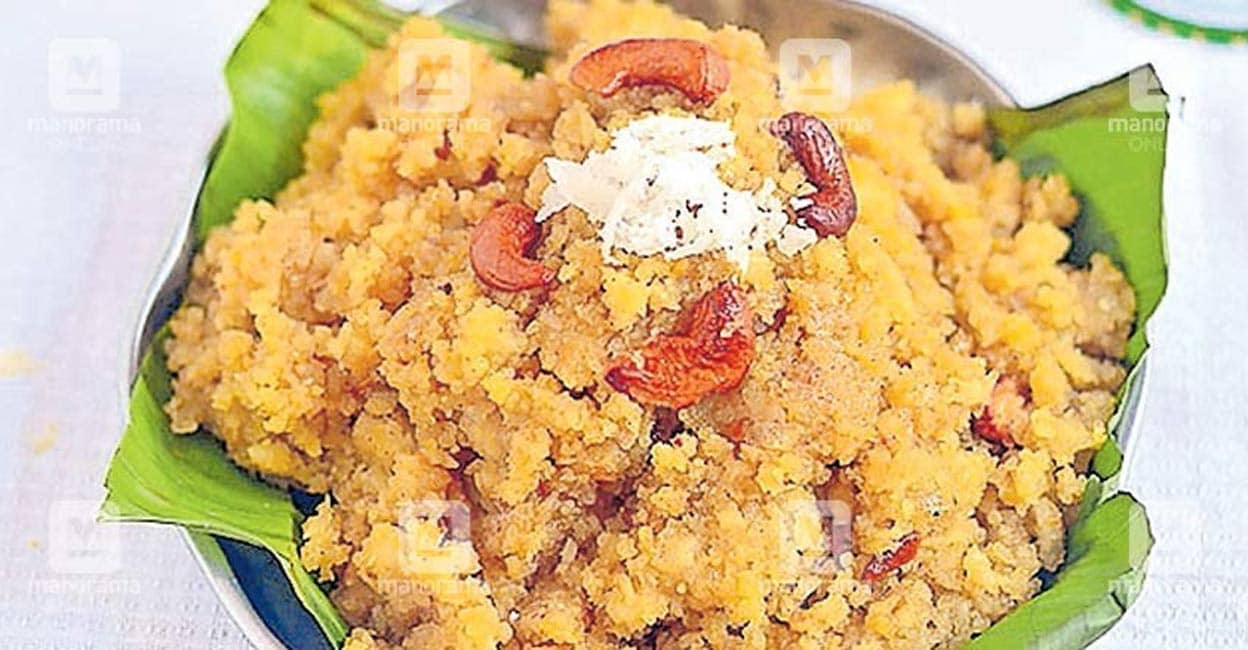How to observe Thiruvathira Vratham? Puzhukku, ettangadi and more fasting recipes

Mail This Article
Thiruvathira is a unique festival celebrating feminine grace and devotion, falling on the Thiruvathira day in the month of Dhanu (Dhanumasa Thiruvathira) according to the Malayalam calendar. It is believed to be the birthday of Lord Shiva. On this day, women observe a "vratham" (vow) throughout the day, culminating with a special no-rice meal and dances to the tunes of Thiruvathira songs. The celebration is a prayer for a long and prosperous marital life and the well-being of their spouses.
Thiruvathira 2025 date
Dhanumasa Thiruvathira festival will be observed on January 13 this year.
Thiruvathira fasting
During Thiruvathira, women refrain from eating rice, instead opting for dishes made from tubers and lentils. These ingredients are harvested primarily during the months of December and January, which coincides with winter—a season when these foods help boost immunity. The festival is a way of connecting with nature and honouring tradition while maintaining good health.
Thiruvathira also marks the celebration of Lord Shiva and Goddess Parvati's union, which is believed to have happened on this day. Women observe this vratham to pray for a prosperous married life and health. Mangalya-vathis (married women) and unmarried young women both participate in the vratham. Married women do it for the well-being of their husbands and children, while unmarried women do it with the hope of finding a good life partner.
Here are some of the most popular Thiruvathira special recipes:
Thiruvathira puzhukku - A traditional and nutritious delight

One of the most iconic dishes served during Thiruvathira is Thiruvathira Puzhukku, a dish made with a variety of tubers like purple yam, elephant foot yam, colocasia, and Chinese potato (koorkka). These ingredients are rich in carbohydrates, fibre, and essential nutrients that aid digestion, regulate blood glucose levels, promote heart health, and prevent diabetes. Elephant foot yam is known for its health benefits in easing haemorrhoids, while colocasia helps combat exhaustion and provides energy. This is an excellent dish to be enjoyed with buck wheat porridge.

Here is an easy to prepare Thiruvathira puzhukku recipe:
Ingredients
20 gm cowpeas
20 gm horse gram
20 gm Bengal gram
20 gm mung beans
100 gm purple yam
50 gm elephant foot yam
100 gm colocasia
100 gm tapioca
50 gm Chinese potato
150 gm plantain
50 gm sweet potato
1 ½ cups grated coconut
3 green chillies
A pinch of cumin
¼ tsp turmeric powder
Salt as required
2 tsp coconut oil
Curry leaves

Preparation
Cook the tubers, pulses and plantain with some salt and turmeric
Grind coconut with cumin and green chilies
Add this paste into the cooked tubers
Mix well
Drizzle some fresh coconut oil
Add a palmful of curry leaves too
Close the lid and keep the dish aside for at least 15 minutes
Give everything a good mix before serving.
Ettangadi recipe
Another important ritual during Thiruvathira is offering Ettangadi, a dish made from locally harvested produce like colocasia, yam, Chinese potato, purple yam, and plantain. In earlier times, young women who observed the 'vratham' (fasting and observance), to please Lord Shiva, used to roast the root vegetables in the pit fire made at the courtyards of their homes. Now, only the lesser yam is roasted like this. All the other vegetables are cooked before mixing it into the delicious and religiously significant 'ettangadi.' Here is how to make it:
Ingredients
750 gm of chopped purple yam, lesser yam, Chinese potato, sweet potato, colocasia, big banana (roasted over charcoal)
600 gm jaggery
100 gm brown beans (cooked)
20 gm sesame (roasted)
Flesh of tender coconut
Coconut shards
2 tbsp ghee

Preparation
Melt the jaggery until thread like consistency
In a vessel add the charcoal-roasted vegetables, melted jaggery, cooked brown beans, roasted sesame, tender coconut, coconut shards and ghee
On a low flame, roast everything well together
Koova payasam recipe
Koova Payasam, or arrowroot payasam, is a healthy dessert enjoyed on Thiruvathira. It is a light, aromatic pudding made with arrowroot powder and jaggery syrup, perfect to complete the meal.
Ingredients
1/3 cup koova podi/arrowroot powder
2 cups water
1.5 cup jaggery syrup
2 tsp ghee
¼ cup grated coconut
¼ tsp cardamom powder

Preparation
Mix water and millet powder without any lumps
On low flame, cook this mixture until it thickens a bit
Add jaggery syrup and 1 tsp ghee
When the payasam is cooked well add cardamom powder and the remaining ghee too
Arrow root payasam is ready.
Kali nivedyam recipe
Kali nivedyam is a traditional offering prepared during the Thiruvathira vratham made with rice, jaggery, small lentils, coconut, and ghee.
Ingredients
1 cup rice
1 cup powdered jaggery
3 tsp small lentils
1/2 cup grated coconut
2 1/2 cups water
8 fried lentils
Ghee as needed
1/2 tsp cardamom powder
Preparation
Roast rice and small lentils separately until they turn red.
Grind them into a coarse powder using a mixer.
In a pot, bring 2 1/2 cups of water to a boil, then add powdered jaggery and stir.
Add the ground rice-lentil mixture, grated coconut, and a bit of ghee. Mix well and cook for 6 minutes.
Fry the fried lentils in ghee and add them to the pot along with cardamom powder.
Stir well, and your Kali nivedyam is ready to serve.

